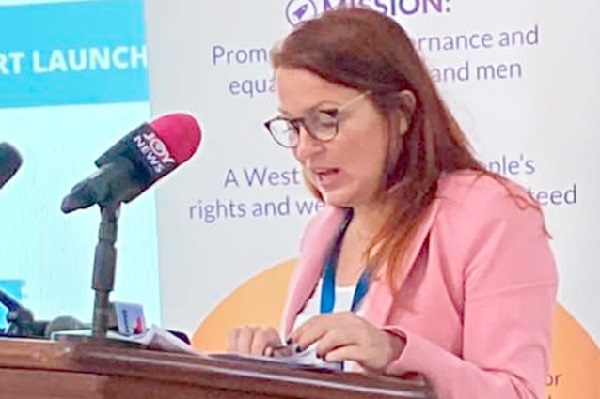
Social sector expenditure low: panelists lament
Panelists at a roundtable on social sector financing have expressed concern about the low funds allocation to the social sector, describing it as inadequate.
They consequently called on governments to view expenditure in that sector as investment in human capital in order to increase funding to that sector.
UNICEF Ghana said from 2015 to 2022, the Ministry of Education (MoE) received an average of 15.5 per cent; the Ministry of Health (MoH) received an average of 8.3 per cent; the Ministry of Gender, Children and Social Protection (MOGCSP) received an average of 0.4 per cent, while the Ministry of Sanitation and Water
Resources received an average of 0.6 per cent as government expenditure to the various social sectors.
It said a higher proportion between 90 and 95 per cent of MoE and MoH budget went to finance compensation for employees, leaving between five and 10 per cent for goods and services and capital expenditure.
"Most often, we see investment in the social sector as a waste; we don't see it as an investment. Since 2015, we have not done any upward adjustment to the LEAP (Livelihood Empowerment Against Poverty) grant," said Mawutor Ablo, a panelist.
The roundtable was organised by SEND Ghana to raise discussions on the need to prioritise and finance the social sector amid the current economic challenges in the country.
The other panelists were the Member of Parliament (MP) for Ahafo Ano North, Suleman Sanid; the MP for Odododiodio, Nii Lante Vanderpuye; the Dean of International Programmes at the University of Ghana, Prof. Eric Osei-Assibey, and a policy analyst at ISODEC, Leonard Shang-Quartey.
Investment in social sector
Mr Ablo, who is the Director of the Ghana Productive Safety Net Project of the MOGCSP, called for a second look at the social sector, and asked that expenditure in the area be treated as an investment.
Quoting a study by the MOGCSP on how the LEAP grant had contributed to investment, he said for every GH¢1 spent on a beneficiary, it had the potential to generate an additional GH¢2.5, while the beneficiary became more productive.
"We are feeding schoolchildren and providing them with free education. What are we doing? We are contributing to their human capital development. We have a lot to do. If we see social protection really as an investment, I don't see why we should be creating that fiscal space for this to be happening," he said.
He called for collaboration and cooperation among the various social sectors in the country, namely education, health and agriculture, among others, to create better social protection for the country.
Under-prioritisation of social spending
Prof. Osei-Assibey pointed out that the nation was underprioritising social spending, adding that the current economic crisis had the potential to widen inequality and cause more vulnerable people to fall into poverty.
He said the reality was that for social services, somebody must pay, and suggested 'sin' tax, widening of the tax net and for a policy to be introduced to ensure that everybody paid something that was earmarked for social services.
Mr Shang-Quartey said the health sector was an important area that needed to be looked at so far as social protection was concerned.
Mr Sanid gave an assurance that the concerns would be discussed in Parliament.
Social sector financing
Earlier, the Chief Social Policy and Inclusion Officer at UNICEF, Pauliina Sarvilahti, in a presentation on child sensitive social sector financing, called for equitable resource allocation and efficient spending to improve delivery of social services.
She further called for revenue raising measures to support social sector spending and budget credibility to ensure that paid actuals mimicked budgetary allocations.
Ms Sarvilahti said there should be timely release of funds for LEAP payments, ensure that the NHIS levy was released in full in line with statutory commitments, and to also introduce a shock-responsive emergency fund to ensure that the government could respond quickly to emerging crisis.
Responding to the issues, the Head of Growth, Employment and Income Distribution Unit of the Ministry of Finance, Raymond Nazar, said social spending was a priority to the ministry, and that it was for that reason that social protection would be prioritised at the ongoing IMF negotiations.
The Deputy Country Representative of SEND Ghana, Dr Emmanuel Ayifah, said the social sector was very critical so far as the human capital of Ghanaians was concerned, and that looking at the current economic crisis, the IMF negotiations and debt risk it was important to prioritise discussion on the sector.
